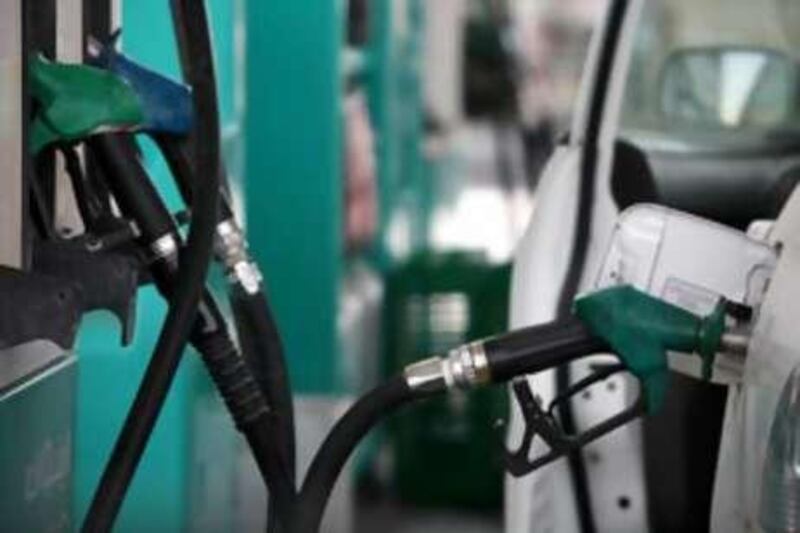The Middle East may overtake China as the biggest contributor to global oil demand growth, according to a leading international investment bank. Noting that China's appetite for oil may be slowing while demand has already fallen significantly in the developed world, Morgan Stanley analysts have pegged the Middle East as the region most likely to prop up world oil demand in 2009-2010. "The Middle East could overtake China for the next couple of years," they said in a research report focused on the region's oil and gas sector. "The Middle East will not be immune to a global economic downturn, as governments reconsider infrastructure projects. However, with few incentives to remove oil subsidies, young and growing populations, and not enough gas on-stream for electricity generation, the region is still likely to be an important driver of global oil demand," Morgan Stanley predicted. The Middle East is already an important contributor to world oil demand, accounting for 17 per cent of global demand growth since 2000, the firm noted. Saudi Arabia and Iran, the region's two most populous countries, have added most of that growth, it said. Fuel subsidies throughout the Middle East have been important in keeping regional oil demand high, and in Morgan Stanley's opinion are unlikely to be scrapped in the foreseeable future, especially in oil producing states. "There is unlikely to be a major policy change on subsidies in the Middle East," the firm said. "The benefit of incremental oil revenues outweighs the cost of subsidies, which arguably limits the incentive for major policy change." The region's demographics also support robust growth in oil demand. As a result of population expansion and a relatively young median age, the Middle East has become increasingly important in light vehicle sales growth, Morgan Stanley found. Growing populations combined with industrial development have also meant rising demand for electricity, especially to power desalination plants producing water. But with much of the Middle East short of gas, that has led most countries in the region to consume more oil for electricity generation. The Morgan Stanley analysts took issue with some experts who expect growth in Middle Eastern oil demand to slow in line with the rest of Asia, as a global recession takes hold. "We argue that a significant increase in demand is well set. Any slowdown given lower activity levels/infrastructure build due to tighter credit markets and lower oil prices would be temporary," the firm said. Morgan Stanley's report also highlighted the Middle East's increasingly important role as a gas consuming region and its tight gas situation as factors likely to impact world energy markets, constraining supplies and driving prices higher in the long term. In terms of world oil supply, capacity increases in oil producing countries "boil down to ability and willingness", the report said. "We argue that the existing infrastructure in the Middle East makes that increasingly difficult, particularly if oil demand increases." Despite significant investment in oil development, Middle Eastern oil producers are pumping "similar" crude volumes compared with 30 years ago, the Morgan Stanley analysts said. "Moving to 38 million barrels per day (bpd) by 2030 from 24 million bpd, as the International Energy Agency projects, will take considerable investment, in our view." Despite significant gas deposits, the evolution of the region's gas industry has lagged behind its oil sector, Morgan Stanley said, due to the cost and difficulty of exploiting gas reserves that were relatively tough to produce compared to those in other parts of the world, and because large gas subsidies had muted incentives for investment. Ultimately, that meant "less gas and higher prices for everybody else", it said. "Furthermore, we argue that gas is also unlikely to be sold at a significant discount to oil, as in the past. the era of gas as a poor relation to oil is firmly over," the firm added. Compared to other gas producing regions such as North America and Russia, the Middle East has seen little investment in "vital" gas infrastructure such as pipelines, Morgan Stanley said. The firm also noted a paucity of large cross-border gas projects in the region, with the Dolphin Energy pipeline project to supply Qatari gas to the UAE and Oman being the only one successfully completed. The Middle East has 40 per cent of the world's gas reserves but only 12 per cent of global production, according to the BP Statistical Review of World Energy. tcarlisle@thenational.ae
Oil appetite in Middle East to soar
The region is set to overtake China as the biggest contributor to global oil demand growth.

Editor's picks
More from the national




